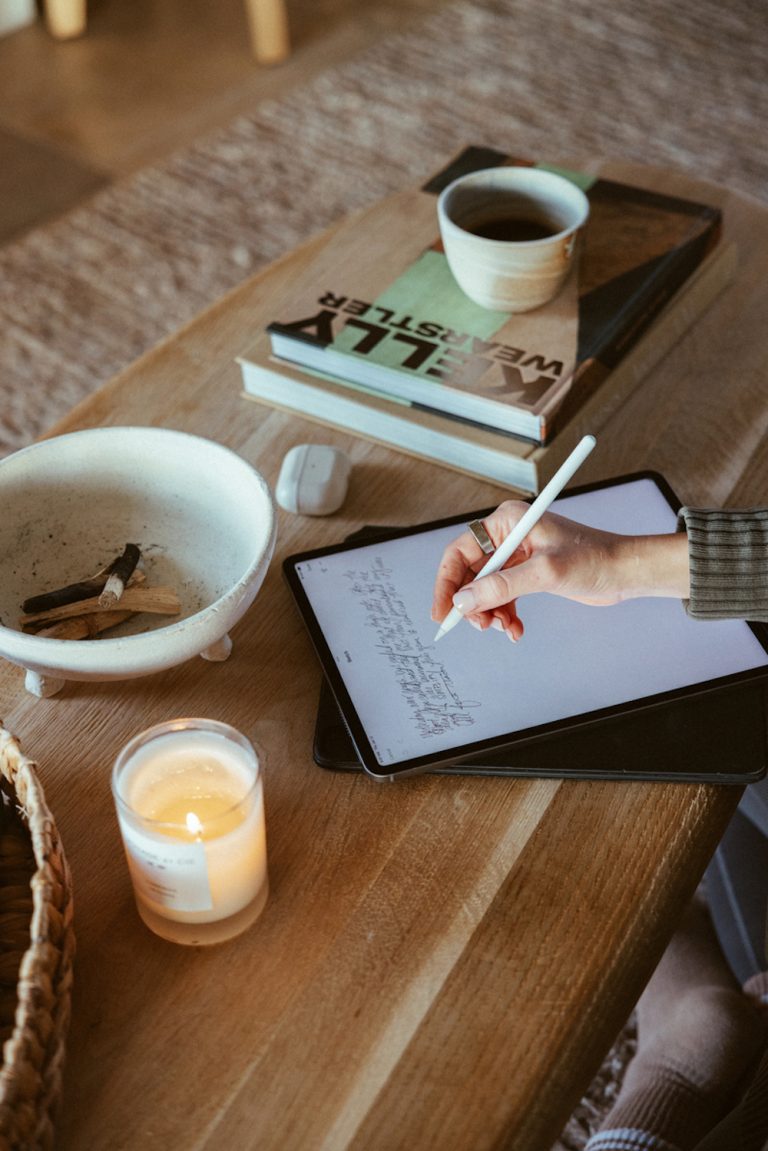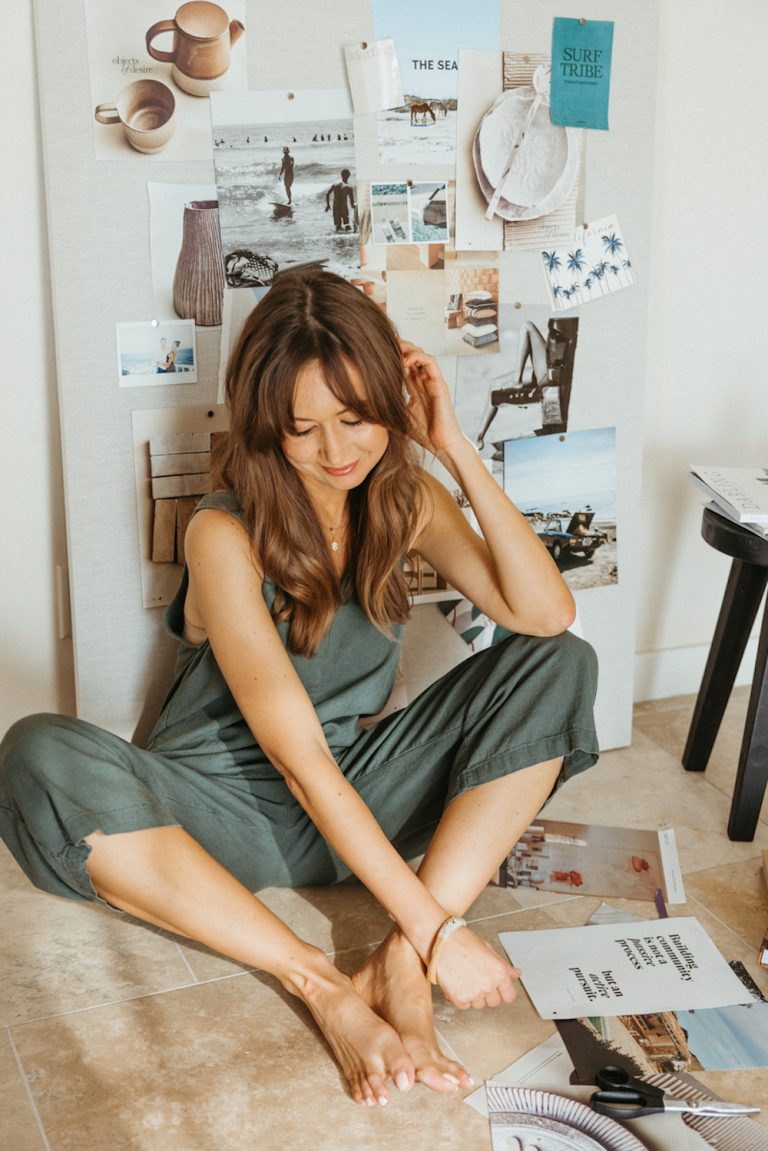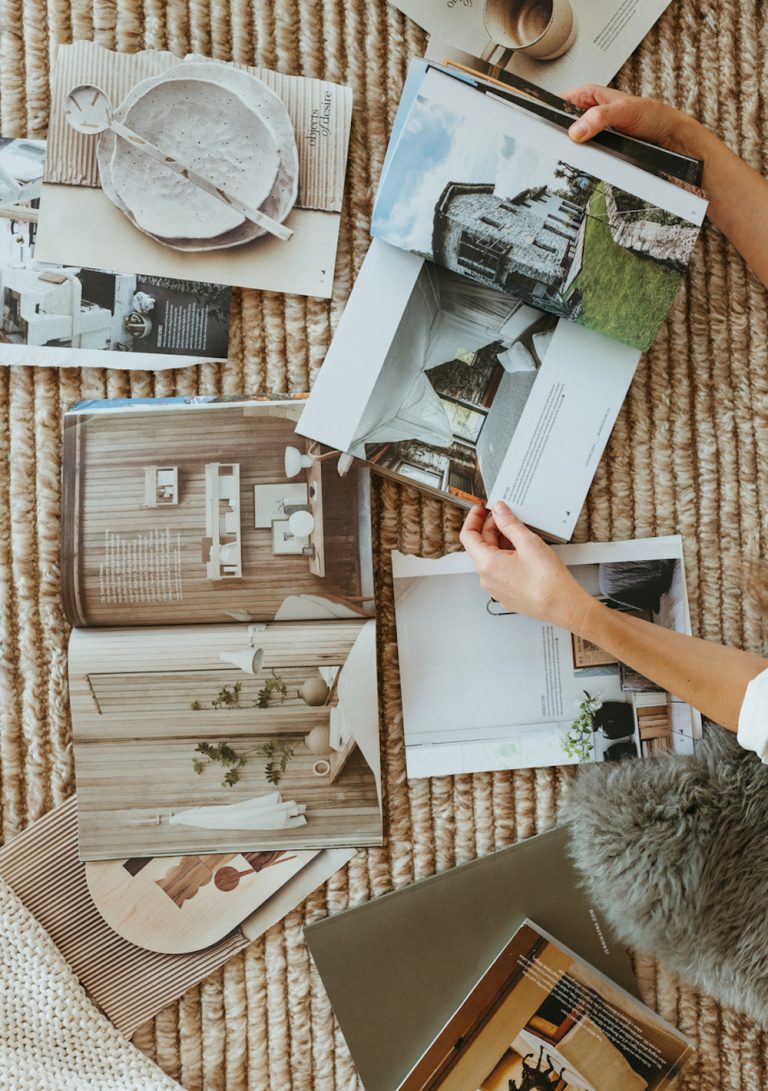I’ve never been one for directions. In fact, I’ve always joked that—when pursuing a route—it’s my instinct to set off in the opposite direction. Physically, without an internal compass, it’s easy to find myself lost. In a philosophical sense, I used to feel similarly about my life. And while questions of purpose, our paths, and progress are normal, it can be helpful to have a framework to guide our way. That’s why, when I first learned about the concept of a vision board, I knew I’d landed on something game-changing.
Of course, I’m not the only one. As manifestation has gained traction in recent years, the practice of visually planning out our goals and creating a roadmap for our dream life has become widespread. And while skeptics may call this a lazy approach to simply sitting back and wishing our dreams will come true, combining a vision board with plenty of hard work could be one of the most powerful ways of moving our lives from point A to point B.
Featured image by Michelle Nash.
What is a vision board?
I spent a lot of my teenage years hanging out at home on a Saturday night, cutting up issues of Seventeen and my past issues of my mom’s Martha Stewart Living to piece together a collage of images and words that resonated with where life found me—and where I wanted to be. While I didn’t have the words for it yet, I was physically putting the energy out into the universe to make these visual dreams come true. And in the decade-plus since then, I can confidently say: much of what I cut out and pasted has become a true and concrete part of my life.
Put simply, a vision board is a tool in our manifestation toolbox to help us transition from intention to reality. No matter our goals, a vision board is a compilation of the visuals and text that represent whatever it is you want to accomplish.
It’s important to note that a vision board is not the same as a mood board. The difference comes down to aesthetic planning versus goal planning. While a mood board can help you plan everything from the look and feel of a photo shoot to the design of a living room, a vision board is intended to serve as a reminder of a goal or the intentions you’ve set for yourself over a certain period of time.
Beyond that, when it comes to making a vision board, there are no rules! Simply identify what it is that you want to bring into your life, and let that guide the way for its physical or digital representation.
How to Make a Vision Board
All vision boards—no matter if you’re making one on a piece of poster board or curating a digital vision board to serve as your phone background—start in the same place: with an intention. Reflect on the goal of your vision board and what you’re hoping it will support you in achieving. I find it helpful to journal about what’s most important to me at this stage of my life. Ask yourself the following questions to reach a place of clarity:
- What is one area of your life that could benefit from a shift or change?
- What three words would you use to describe your life now? What three words would you use to describe where you would like your life to be?
- What do you want your career, relationships, or personal life to look like five years from now?
- Write about your ideal day. What are your habits? Where are you living? Who are you living with? What do you do for work?
By breaking down your life into specific areas of work, relationships, and personal time, it can be easier not only to see perhaps how you’d like to grow, but to gain a clearer understanding of the steps it’ll take to get there.
Now, when making your vision board, it can be easy to overwhelm yourself. However, a vision board is most effective when it represents either one specific goal or what you would like your life to look like in a specific period of time. With your responses to the questions above, identify which area of growth is the most important to you now and commit to building your vision board to progressing toward that goal.
Creating a Physical or Digital Vision Board
Often thought of as an ‘old-school’ method of vision boarding, I still find creating physical versions to be the most helpful manifestation tool for myself. However, I also have a separate digital vision board set as both my phone and desktop background. (One rule about vision boarding: so long as you’re able to stay focused, you can make as many as you’d like!)
Follow these steps to create the vision board of your dreams:
- Gather your inspiration. Cut up old magazines or hop on Pinterest to compile images, words, and quotes that resonate with you. This is key: don’t think too hard about it! Simply select what you’re attracted to at the moment. I find that it’s easier to sort through the images later as I’m starting to build my vision board. Be sure to prioritize clear images and easy-to-understand words that directly support and relate to your goal.
- Curate and collage. With your images cut out, use glue, tape, or Mod Podge to adhere them to a paper or poster board. Alternatively, if you’re creating a digital version, you can use a program like Canva to design your vision board. The basic version is free and supports you with everything you need to get started.
- Put your vision board where you’ll see it. This is important. For your vision board to work its metaphysical ways, be sure to position it strategically. Because I spend the majority of my weekdays at my desk, I keep mine posted behind my laptop, giving me the opportunity to look at it as often as possible. While you can place your vision board anywhere, other common areas include on the refrigerator, by your bedside, or framed up in your living room. Wherever you will see it most often is where your vision board will be most powerful.
Does a vision board work?
Visualization can be a powerful tool in helping us improve everything from self-confidence to performance to motivation. Here, the cliché applies: “Seeing is believing.” When we look at this visual representation of dreams and goals, we’re reminded of where we want to be—and the path it takes to get there.
Get the Camille Styles Vision Workbook
One of the easiest ways to get started? Download our free Vision Workbook. At Camille Styles, we’re aligned with the values behind vision boarding—believing that we need to set strategic goals to intentionally head in the direction of our dreams. We designed the workbook to help you do exactly that. Each page was intentionally crafted to help you along the process of identifying a vision for yourself—your career, your relationships, and your life.
In the workbook, you’ll gain support in the following:
- Writing a mantra that encompasses your values and how you’d like to grow.
- A structured plan to gain alignment in every area of your life, including Career & Creativity, Healthy & Wellness, and Personal Development.
- Monthly check-ins to reflect on your progress and make adjustments if necessary.
- A Daily Practice plan to ensure you’re always working toward your goals.
Ready to get started? You don’t have to wait until the New Year to make your dreams happen. Remember: The best time to begin is now.




